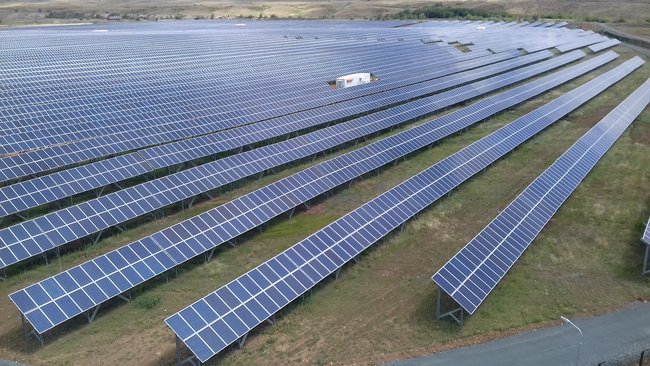Actively opposing the proposed blanket safeguard duty on imports of solar panels and cells, AISIA has said the levy will negatively impact solar manufacturers operating out of the Special Economic Zones (SEZ) across the country.
“The SEZ units are treated on par with foreign manufacturers, and hence any safeguard duty will be detrimental to the Indian solar industry as a whole,” said Gyanesh Chaudhary, General Secretary of All India Solar Industries Association (AISIA).
As reported earlier, the safeguard duty or provisional duty, as stated by Directorate General of Anti-Dumping & Allied Duty (DGAD), could be imposed before Anti-Dumping Duty (ADD). According to Bridge to India, the safeguard duty is expected to be imposed in February.
AISIA, however, has made a strong case for specific ADD on imports from China and other Asian countries, which are flooding the Indian market with cheap solar modules, thus making domestic industry unviable.
“If we take the case of solar modules and cells, India has 3.1 GW of installed capacity of solar cells out of which 2 GW, more than 60%, are situated in SEZs.
“It should be noted that out of 8.3 GW of solar module manufacturing facilities of 3.8 GW are situated in SEZs. Hence, the indigenous manufacturers situated in SEZ will come under the ambit any blanket duty that will be imposed on solar cells and modules which will make them uncompetitive,” Chaudhary said in a statement.
In 2016-17, the estimated demand for solar modules was around 6 GW, whereas the market is expected to reach up to 10 GW in 2017-18.
Under the WTO framework, a member country can impose a safeguard duty if the increased quantity of imports are either an absolute increase, or an increase relative to domestic production, which is causing severe damage or threat of serious injury to the domestic industry.
“Serious injury” is defined as a significant overall impairment in the position of a domestic industry.
“In determining whether serious injury is present, investigating authorities must evaluate all relevant factors having a bearing on the condition of the industry, include the absolute and relative rate and amount of increase in imports, the market share taken by the increased imports, as well as changes in level of sales, production, productivity, capacity, utilization, profit and losses, and employment of the domestic industry,” Chaudhary explained.
India created Special Economic Zones (SEZs) in 2005 with single window clearance and tax holidays to facilitate manufacturing in India.
Under the customs laws, SEZ units are considered to be outside Indian customs territories. Thus, goods manufactured in SEZ, if sold in India, are treated as exports with no customs duty applicable.
Indigenous manufacturers located in SEZ will be caught out if a safeguard duty is imposed on all imported solar modules and cells.
The purpose of imposing the duty should be to protect the domestic industry from goods which are being dumped at below market prices, but in the case of local manufacturers situated in SEZs, the tax yields counterproductive results.
“This could also lead to increase in cost power that will discourage the domestic industry,” Chaudhary pointed out.
According to AISIA, the imposition of differential ADD – higher on solar modules and lower on solar cells – for imports from China PR, Taiwan and Malaysia will encourage the growth of domestic manufacturing.
“This will help both solar cell and module manufacturers to compete in the local market and encourage the Make in India mission,” Chaudhary said.
Protective measures, such as Safeguard Duties, ADD and Basic Customs Duty (BCD) are meant to help the domestic industry, but they can cripple SEZ units and goes against the theme and spirit of Make in India Policy.
“At a time when GDP growth is constantly declining, manufacturing industry has a huge role to play in India’s growth story; we need to re-evaluate the duty structures to facilitate the survival and growth of the domestic industry,” Chaudhary added.
Now, there are three duties hovering over the Indian solar industry, and domestic manufacturers have a keen eye for all of them. These are: ADD, an import duty (which is expected 7.5%, according to BNEF), and a safeguard duty – all of which will be implemented separately.
This has made the whole tax scenario on imported cells and modules a complex structure.
This content is protected by copyright and may not be reused. If you want to cooperate with us and would like to reuse some of our content, please contact: editors@pv-magazine.com.








By submitting this form you agree to pv magazine using your data for the purposes of publishing your comment.
Your personal data will only be disclosed or otherwise transmitted to third parties for the purposes of spam filtering or if this is necessary for technical maintenance of the website. Any other transfer to third parties will not take place unless this is justified on the basis of applicable data protection regulations or if pv magazine is legally obliged to do so.
You may revoke this consent at any time with effect for the future, in which case your personal data will be deleted immediately. Otherwise, your data will be deleted if pv magazine has processed your request or the purpose of data storage is fulfilled.
Further information on data privacy can be found in our Data Protection Policy.